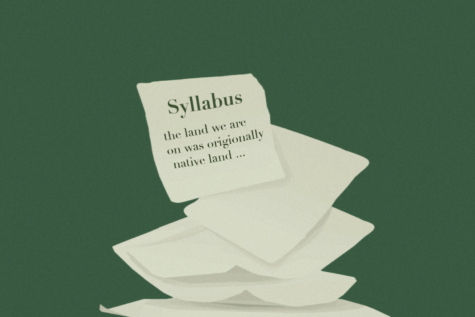OPINION | Tulane’s land acknowledgments need to promote action

Tulane University is located on land that once belonged to the Choctaw, Houma, Chitimacha, Biloxi and many other Native peoples before being stolen through bloodshed in the name of “civilization.” In light of efforts to promote racial equity, Tulane collaborated with Colleen Billiot and John Barbry — members of the United Houma and Tunica-Biloxi Nations — to publish a land acknowledgment, which can be found online and on many class syllabi.
While Tulane’s land acknowledgment is a step in the right direction, it is performative and does not come close to addressing the atrocities and trauma that Indigenous tribes face every day.
According to Lisa J. Watt, Director of the Indigenous Leadership Program at Ecotrust, land acknowledgments are “a statement recited at the start of a gathering that identifies the First Peoples or tribes of a specific region. They are intended to offer respect for the Indigenous peoples on whose traditional homelands non-Natives occupy and serve as a reminder of their presence.” In recent years, land acknowledgments have become increasingly popular as organizations attempt to honor the Indigenous tribes that have suffered greatly at the hands of the U.S.
The growing public presence of these land acknowledgments puts them at the center of conversations in the Indigenous world. Many tribes criticize the acknowledgments, calling them performative, token gestures that fail to acknowledge the deep injustices and traumas Native peoples have faced since the arrival of colonists.
Tulane’s land acknowledgment is no different. It walks the line between professionalism and ignorance, as it fails to acknowledge the hardships and generational trauma Indigenous peoples still face. Tulane’s land acknowledgment fails to outline the United States’ violent removal of Indigenous peoples from their land, avoiding the magnitude and lasting effect of the country’s actions. Instead, it uses politically correct language to paint an image of peace and symbiosis between the two groups. In only four short paragraphs, Tulane fails to accurately describe the conditions in which a land acknowledgment is needed.
The Association of Indigenous Anthropologists asked that the American Anthropological Association, the primary professional society of U.S. anthropologists, officially pause land acknowledgments because they “unintentionally communicate false ideas about the history of dispossession and the current realities of American Indians and Alaska Natives.”
Tulane does not need to remove its land acknowledgment, but the university needs to follow its words with action. The implication with Tulane’s land acknowledgment is the notion of “what was once yours is now ours,” without any attempts towards rectification. At the end of the land acknowledgment section of the syllabi, the university should take a more compelling and affirmative approach by highlighting organizations fighting for land return, Indigenous rights and the promotion and proliferation of Indigenous equality and equity.
There is still a significant gap in equality for Indigenous communities that must be breached before the U.S. can ever be a place of justice. Classroom education, acknowledgment of the crimes against Indigenous peoples and informing the masses on ways to empower Indigenous populations are the building blocks for Tulane on the road toward equality.
Your donation will support the student journalists of Tulane University. Your contribution will allow us to purchase equipment and cover our annual website hosting costs.


